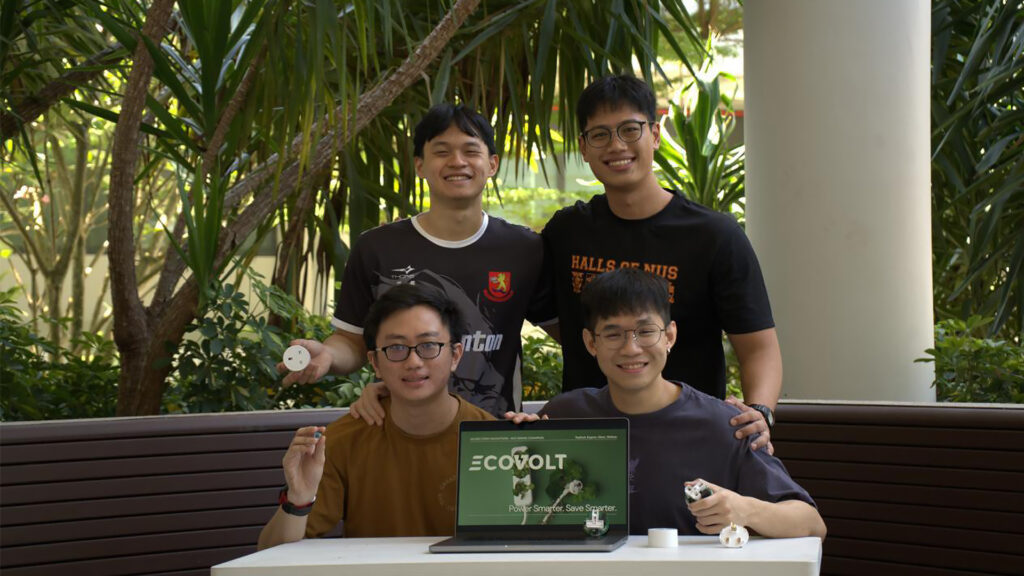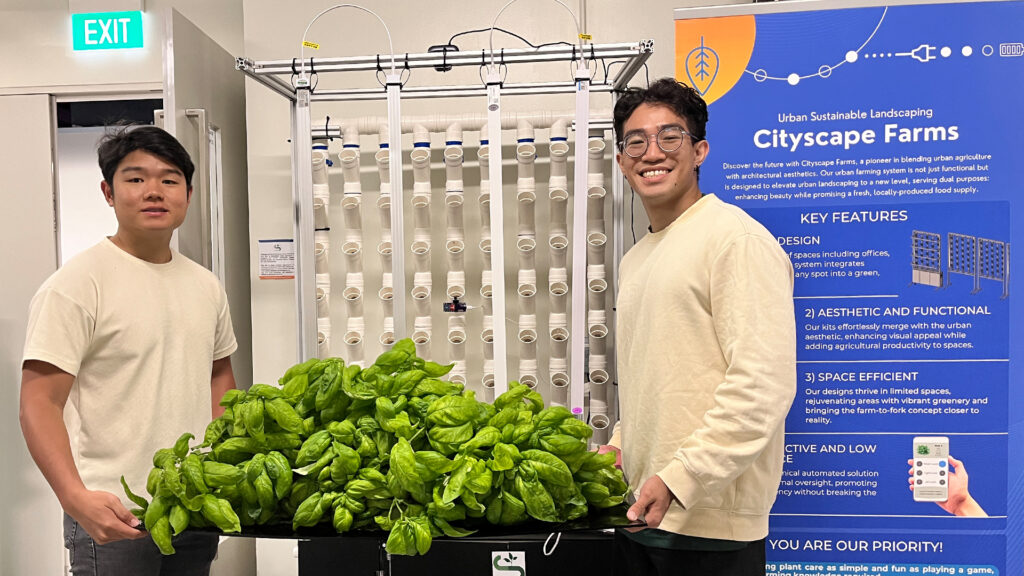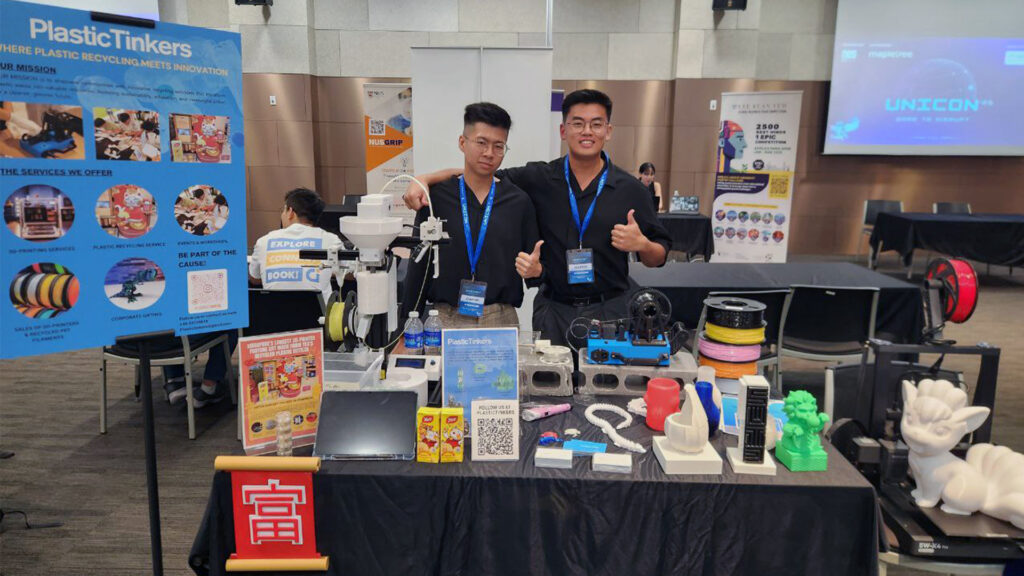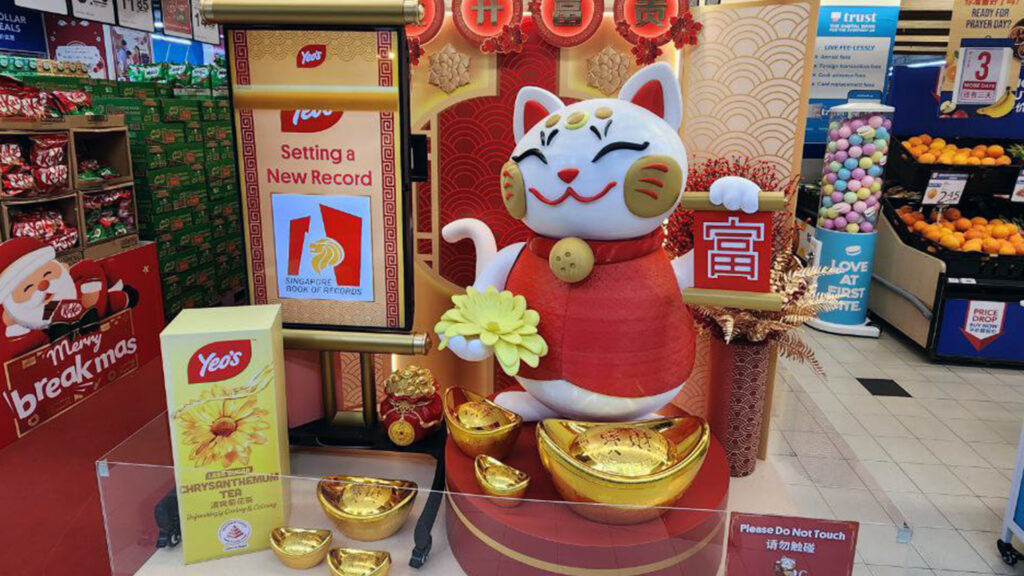How NUS start-ups are driving sustainable change through green innovation
May 27, 2025

In the fight against climate change, a new generation of NUS student entrepreneurs is storming the sustainability frontier.
From reducing energy waste to reinventing urban agriculture, these eco-warriors have been tackling environmental challenges through viable business models. With support from programmes such as the NUS Overseas Colleges (NOC), BLOCK71 at THE HANGAR, BLOCK71 Social Impact Hub (SIH), and various initiatives by NUS Enterprise, they have shown how the University serves as a fertile ground for sustainability innovation, proving that environmental responsibility and entrepreneurial success can go hand in hand.
Here’s how three promising NUS-supported start-ups are making a green mark.
EcoVolt
“Vampire energy” might sound like something out of a horror movie, but it’s a real environmental menace that silently drains power and resources. This phenomenon — where devices continue to “suck” energy even when not in use — accounts for over 16 per cent of power consumption in homes and offices.
Enter EcoVolt, a start-up determined to drive a stake through the problem. Founded by four NUS students who met through the Sustainable Development Goals Open Hack @ NUS 2024, it has developed a two-pronged solution to monitor and eliminate such energy wastage.

“We empower organisations to monitor, manage and eliminate plug load wastage,” said the team, which comprises Year 5 Computer Science undergraduate Eugene Chia, Year 4 Business undergraduate Raphael Chew, Year 4 Information Systems undergraduate Glenn Quah and Year 4 Electrical Engineering undergraduate Ho Wei Hao. All four are participants of the NOC programme, through which they undertook internships at overseas tech start-ups.
By employing custom-designed adapters, socket plates, and extension cords, EcoVolt collects and transmits data to its proprietary software platform, enabling users to monitor and manage plug loads across multiple locations — from individual desks to entire building networks. This allows users to easily track and target idle plug loads, or electricity consumed by devices that remain plugged in but are not actively used.
Incubated under BLOCK71 SIH since April 2025, EcoVolt hopes its technology will be widely adopted. “This is really an ‘every little bit counts’ initiative,” said the founders. “This is our only planet, so we need to find ways to stay on it.”
Cityscape Farms
As urbanisation increases, so does the distance between people and their food sources. Cityscape Farms is addressing this disconnect with plug-and-play hydroponic systems designed specifically for Singapore’s urban environment.
“Our mission is to bring sustainable farming to Singaporeans by integrating nature into homes, schools, and offices,” said the team founded by College of Design and Engineering alumni Davian Chan Sze Peng and Manzel Joseph Seet, School of Computing and Faculty of Science alumnus Ho Hol Yin, and Year 3 undergraduate from the Faculty of Arts and Social Sciences Chew Chi Ying.

The start-up tackles two major sustainability challenges: urban food insecurity and inefficient use of space and resources in traditional farming methods. Their modular hydroponic systems, which are complemented by smart irrigation solutions, aim to reduce the reliance on traditional farming methods while promoting local food production with minimal waste.
After initially creating systems that were overly complex and costly, the team pivoted to a simplified design with a gamified app, making urban farming accessible to anyone, regardless of whether they have green fingers or experience in sustainable farming. The start-up aims to promote local food production, creating a win-win solution by reducing reliance on overseas imports and lowering the carbon footprint associated with them.
Currently incubated at the NUS Agritech Centre, the recipient of the NUS Enterprise Venture Initiation Programme — Impact Track is finalising its commercial products for corporate clients while expanding its outreach to schools, offices and even the broader Southeast Asian market.
PlasticTinkers
Over 900 million kg of plastic waste is generated annually in Singapore alone. Only a small fraction of this is recycled, while most end up in landfills or incinerators and contribute to pollution and carbon emissions.
PlasticTinkers tackles the growing plastic waste problem by giving discarded plastics a second life. The start-up collects and processes used plastic bottles, transforming them into filaments for 3D printing.

Co-founded by Edwin Lam, a Master of Architecture Year 5 student, the start-up consolidates the entire recycling process under one roof – from gathering waste plastic, converting it to usable filament, to producing functional products using 3D printing.
“We want to significantly increase the plastic recycling rate by empowering individuals and revolutionising the sustainability culture in Singapore,” said Edwin, whose start-up was awarded a project grant from the NUS x Hult Prize 2025 and is currently incubated under BLOCK71 at THE HANGAR.

In addition to promoting environmental awareness through hands-on workshops and community collaborations, the start-up collaborated with Yeo’s and other partners earlier this year to create Singapore’s largest 3D-printed fortune cat, measuring 1.2 m by 0.8 m. The project earned a spot in the Singapore Book of Records as the largest 3D-printed model made from recycled plastic bottles.
Moving forward, the team aims to develop a compact recycling machine deployable in collaborative workspaces and educational institutions across Singapore to enable and empower communities to produce their own 3D printing filaments from plastic waste.

